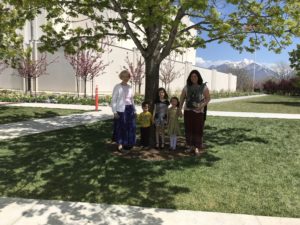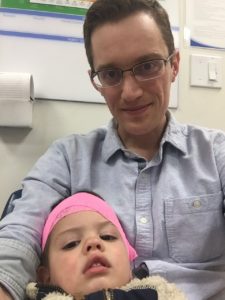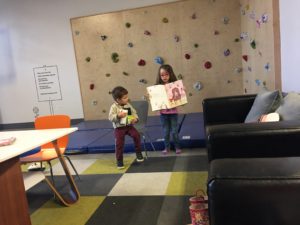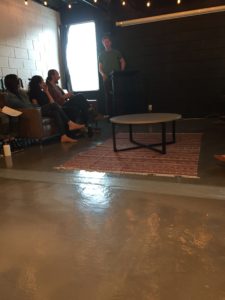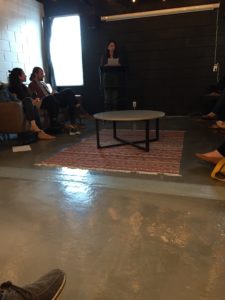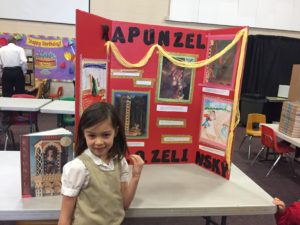I had several people tell me at church and by text that they appreciate my comments at church, and that made me feel so reassured and connected to my ward community. My comments have been really unconventional of late, and so I often feel vulnerable speaking. At the same time, I feel that I HAVE to speak–like, I am so consumed with my personal spiritual journey right now that I literally can’t seem to stop myself. The scriptures are alive to me, and when we discuss them in class, my heart wells up and I can’t seem to keep my hand down. My feelings for my ward are quite tender right now; I love the individuals here so much, and I can’t overstate how much I’ve come to appreciate the friendship of these lovely people.
Abe had an experience today which increased his faith. He dropped something in the disposal and jammed it, and he felt really discouraged about the whole thing. He didn’t know why God didn’t stop this annoying experience, and he even prayed about it for comfort but got none. This evening Abe and I have been sitting on the porch writing and talking, and our neighbor accidentally pushed his garbage can over and everything spilled out. Abe heard him say to himself, “I really wish I hadn’t done that.”
Of course, Abe immediately went to help, and in doing so, he told our neighbor, “I had the EXACT same experience today!” And then he explained about the disposal. Our sweet neighbor immediately came over and showed Abe how to fix the disposal.
So Abe emerged from the experience feeling that there was purpose in the jammed disposal. We got to strengthen our friendship with our already beloved neighbor, and what does God care more about than relationships? He also felt that there was a purpose in the way God did not answer his prayer. After all, God tries our faith. God could have said, “Don’t worry, Abe, I will take care of it,” and Abe would have felt fine. Instead he felt that God stayed silent, and Abe just had to trust these little frustrations are yet in God’s hands. It seems like a small experience but it was instructive.
I have been incorporating all of my own recent studies into my talk, which I have quite drastically re-written. This is its current state:
Eating the Fruit: The Journey from Eden and the Way to Wisdom
As members of the Church, we have a singular interpretation of the Fall and also of Mother Eve. Unfortunately, we also tend to speak of this doctrine n a singular way. Often we frame Eve’s “brave” choice to eat the fruit in relief against other Christian theologies which castigate her for this choice. We collectively arrive at the conclusion that while all the rest of the world makes Eve out as the villain, we do not. We then pat ourselves on the back for this progressive doctrine and move on.
My discomfort with this way of teaching the Fall stems from two questions. First, where are Eve’s contemporary accusers? In my own experience attending a different Christian church during my childhood, I never once encountered someone teaching about the fall of Adam and Eve. All I remember were sermons on Christ and grace. And the secular world, which is admittedly rife with misogyny and malignant beliefs about women, rejects the existence of Adam and Eve altogether. Therefore, the way we currently treat this doctrine is plainly anachronistic and strips this story of its actual power to change us as individuals and as a people. What does this story matter to your personal spiritual journey if the only purpose of Eve is to highlight that our church is more true than others?
Brothers and Sisters, on this Mother’s Day, I would like to bear my testimony that the story of Mother Eve is one of the most relevant, life-altering stories we will ever encounter in scripture, and she applies to you. Before we untangle her immediate relevance though, let us walk through her story once again and make sure we have it right.
In the Garden of Eden, God created Adam and Eve. The 1604 translation of the Bible says that Eve was Adam’s “helpmeet,” but I recently learned from a BYU talk sent along by Emma Freestone that the Hebrew translation of “helpmeet” is ezer k’negdo. Ezer means to rescue or save, and k’negdo means strength. So Eve was not a meek, suboordinate helpmeet for a superior Adam. Beverly Campbell, once the Church’s director of international affairs and author of the book, Eve and the Choice Made in Eden, gives us this translation of Genesis 2: 18: ““It is not good that man should be alone; I will make a majestic, saving power, equal with him, to be his companion.” (Campbell, Beverly. “Mother Eve Mentor for Today’s Woman: A Heritage of Honor.” pps. 5-6. April 2, 1993, Salt Lake City, Utah.)
Adam and Eve were together given commandments directly from God. Right and wrong were clearly taught. The path for righteousness was obvious and clear. To eat of the tree of knowledge was forbidden, and both Adam and Eve took this instruction to heart.
When Adam was presented with the fruit, he rejected the offer straightaway. Adam didn’t so much as ask Satan who he was or why he was initiating this disturbing conversation in the first place; he was so intent on obeying the commandments of God, that he “just said no.”
When Eve was given the fruit, she immediately recognized that the nature of the conversation she was having was just as important as the conversation itself; she asked Satan who he was, and questioned him on their relationship. Satan represented himself as the serpent, the symbol of Christ. Eve must have taken this into account when she plumbed his motives and then took time to seriously consider the questions he posed. What happened next is difficult to explain, but “Dr. Nehama Aschenasy, a Hebrew scholar, said that in Hebrew the word which translated as beguiled in the Bible does not mean “tricked” or “deceived” as we commonly think. Rather, the Hebrew word is a rare verb that indicates an intense multilevel experience evoking great emotional, psychological, and or spiritual trauma.” (The Gift of Giving Life: Re-discovering the Divine Nature of Pregnancy and Birth, pgs. 2-3) This deep trauma opened Eve to the sensation of yearning. Eve yearned for knowledge. She hungered for experience and wisdom. When Eve ate the fruit, she literally took her life into her own hands to get knowledge, experience, and wisdom, whatever the cost, and however dark the journey. And, make no mistake about it, the the cost for her choice was high and her journey was dark. Ultimately, however, our beautiful theology gives us an enlightened understanding of her choice and journey. Though her choice broke God’s law, her journey was God’s will.
The personal application of Eve’s story is fraught with peril, and I believe it is that sense of danger which keeps our current conversations about her so lamentably superficial. In our Church, we celebrate Eve the woman, but we leave her example largely alone. Our church culture places a lot of emphasis on living our lives much as Adam did. We are taught to follow and obey, keep the commandments as perfectly as we can, and to put our trust and faith in God. When the prophet speaks, we are told that we are invited to receive personal confirmation of his words for ourselves, but we never discuss nor are we told what to do if our personal encounters with the Spirit lead us in an alternate way. When we have questions that seem to have no answers in this life, we may put those questions on the shelf, faithfully trusting that in time, probably in the next life, we will have all the answers we need and everything will be okay.
There is nothing wrong with this approach to faith and to life. This, as we can see in scripture, was Adam’s exact approach. He followed, he trusted, he believed, and he obeyed. There are many situations in life where Adam’s approach to life is not only preferable, but honestly enlightened.
At the same time, Eve’s approach to the question of agency and transgression is wise. She hungered and thirsted for further light and knowledge. She longed to be filled. She ate the fruit, welcoming the onset of complexities, ambiguity, confusion, and sorrows of mortal life. She took a dark journey, and, as she would one day understand, this strange and terrible descent put her in the exact center of God’s will.
We, Eve’s children in the latter days, are on our own mortal journeys. There are times during our journeys that we are faced with hard choices about what to believe, whom to trust, and how to act. We may have questions that feel urgent, that can no longer be shelved, and that we need to address if only to preserve our personal integrity. We, as Eve did, hunger and thirst after further light and knowledge. We long to be filled.
As Eve did, we may find ourselves stepping out onto journeys that feel dark and uncomfortable. A true wrestle with questions about faith means that we will be vulnerable, our minds will be malleable, open to new ideas, able to internalize truths and–here’s the catch–deceptions all at once. My own patriarchal blessing explicitly tells me that part of my life journey will involve taking steps into the dark, but it also assures me with a gorgeous promise. As long as my heart is pure, there will always be protection there.
What is that protection? It is the gift of the Holy Ghost. In the last General Conference, our prophet said, “In coming days, it will not be possible to survive spiritually without the guiding, directing, comforting, and constant influence of the Holy Ghost.”
Russell M. Nelson, General Conference April 2018
Two years ago the Holy Ghost came upon me in the temple and gave me a poem about my own faith journey, entitled She Sonnet.
She is the sonnet, dust of the divine
Infinity incarnate, bipedal spirit.
Her garden walled in marrow, flesh and fat,
She: The great molecular paradox.
Daughter, mother, wife, she-friend of the Friend,
Acting on the messy-hued backdrop
Of mixed intentions. Healing, hurt, wounded, whole,
Begotten Maker–her rest, sweet repose.
Sifter of messages, media, words;
Speaking, hunting, searching, skimming, hearing
Static noise and still spiritual thunder
Sorting seas of verbiage to find the Word.
The grinding search summed up in one sentence:
She–with the ears–hears God in her own mouth.
As fallen mortals, we all “see through a glass darkly,” but as long as we keep our faith, hope, and love close, our journeys into this dark unknown will yield rich treasures of spiritual knowledge. As we continue on, we discover that perhaps we quest not for concrete answers, but a dynamic framework for confronting the mysteries–those things that we know in part, but one day will know face to face, knowing as even we are known. (1 Corinthians 13:12)
One such mystery is the mystery of our Mother in Heaven. We know she exists, thanks to not only Joseph Smith’s explicit confirmation of this fact, but also of the plethora of other religions out there that have sensed the truth of the feminine divine. As people have felt and sought their Heavenly Mother throughout time and across the earth, they have given her many names, Ashera, The Lady, Great Mother, Great Goddess,
or Ruah, (the Hebrew word for Spirit–did you know that “Spirit” is feminine in Hebrew?). http://www.marymagdalenewisdom.com/the-creative-heart-in-the-divine-feminine/
In our religion, prophets have also given her many names and titles: “Mother God,” “God Mother,” “God the Mother,” “God their Eternal Mother,” and “Eternal Mother,” and, most commonly, Heavenly Mother. (“A Mother There”: A Survey of Historical Teachings about Mother in Heaven, Author David L. Paulsen, Author Martin Pulido, p. 78)
We don’t speak of her much because, we often claim that we do not know much about her. But are we completely ignorant, and if so, why? If we don’t know much about Heavenly Mother, then is it because we have not made efforts to form a relationship? What divine, celestialized, perfected mother, would not yearn to have a relationship with her Children?
I do not believe Heavenly Father has hidden Her from us because He could not bear for Her to be disrespected, as is sometimes suggested. The feminine divine is equal to Her masculine counterpart and does not need His protection. After all, the first connotation in Eve’s name is “strength.” Rather, if She has not been revealed to us in all of Her glory, then it is perhaps because we have not sought Her, or She has withheld Herself. Perhaps She does not care to be translated to our hearts through a patriarchal institution and through men. Instead, perhaps She longs for a direct, personal connection with us. But She is a veiled mystery, and if we wish to seek Her, we must go on a journey.
I am not an expert on Heavenly Mother. I personally am only starting this journey for myself, but as one on the journey, I can report that the preliminary discoveries are breathtaking not easily translatable to language. For that reason, much of the writing about Heavenly Mother happens to take the form of poetry, all of it thus far penned by inspired Mormon poetesses. Most recently we have Rachel Hunt Seeblik’s book, Mother’s Milk. If we had time, I would love to read the whole book here. Instead, I’ve narrowed it down to two poems:
What Rosemary Taught Me:
It counts how we
God-talk.
He, Him, His.
She, Her, Hers.
They, Them, Theirs.
It counts how we
God-image.
Almighty Father.
Nursing Mother.
Partnered Parents.
What the Mother Taught Me
Creation is
More than
Procreation.
It is snow, birds,
Trees, moon,
And song.
Eve’s spiritual wrestle and subsequent embrace of mortality in all of its perplexing opposition should give us the courage to wrestle with God about troubling political, theological, or personal issues that feel pressingly relevant to our own mortal experience. Faith journeys surrounding topics such as LGTBQ issues, historical questions about blacks in the priesthood, the historical practice of polygamy and the ghosts of this practice in current doctrine, contemporary church policies, the fallibility of prophets, and the infinite variety of much more personal traumas, outlooks, and experiences all invite questions that could, and, at times, should be shelved.
But, whether we are biological parents or not, we who are grown must be able to engage the questions that our young people and children bring to us. The questions they will ask in this particular time in history will be some of the hardest questions the Church has ever faced. The answers we give them will shape how relevant the Church will seem to the reality of the world they live in. We can stick with the advice to “shelve it and have faith,” or we can give them specific, topic-related advice born from our own personal wrestlings with the questions at hand. Better yet, we can encourage them to step out into the dark unknown of their own faith journeys, buoyed by the knowledge we have that God has seen us and our faith through when we did the very same ourselves. We can prepare our youth for these journeys by counseling them to learn the language of the Spirit and steep themselves in scripture, trusting in the grace of Christ which Paul references so reassuringly in Romans 8
1 What shall we then say to these things? If God be for us, who can be against us?
32 He that spared not his own Son, but delivered him up for us all, how shall he not with him also freely give us all things?…
35 Who shall separate us from the love of Christ? shall tribulation, or distress, or persecution, or famine, or nakedness, or peril, or sword?
37 Nay, in all these things we are more than conquerors through him that loved us.
38 For I am persuaded, that neither death, nor life, nor angels, nor principalities, nor powers, nor things present, nor things to come,
39 Nor height, nor depth, nor any other creature, shall be able to separate us from the love of God, which is in Christ Jesus our Lord.
If God is real then we can have the absolute assurance that the mess, the chaos, the unknowing, the questions, the search, the loss of innocence, the loss–these are at the center of divine will. They are part of the plan. Though the journey is dark, we are watched over, protected, and, eventually, lead to the still waters and green pastures of knowledge, understanding, and wisdom.
Wisdom is repeatedly personified in scripture, particularly Old Testament texts, as a woman. (https://jwa.org/encyclopedia/article/woman-wisdom-bible) In Proverbs, this Woman Wisdom appears as a sister (Proberbs 7), wife (Proverbs 3 and 31), mother (Proverbs 31), prophet (Proverbs 8), and even Goddess. (Proverbs 3:13-18). In Proverbs chapter three, this Woman Wisdom becomes a female tree of life. The menorah is a symbol for this tree of life, and, according to pre-eminent Old Testament scholar Margaret Barker, ancient Israelites understood the tree of life to be a symbol for the feminine divine. Coincidentally, or perhaps it is no coincidence at all, the menorah–or, feminine divine–originally stood in the temple, not just anywhere, but in the Holy of Holies. (Barker, Margaret. The Mother of the Lord, p. 2)
Mother’s Day can be many things to women. We come to this day with infinitely diverse experiences and attitudes. These conflicting attitudes are somewhat captured in the narrative of Anna Jarvis, the founder of Mother’s Day. Originally she conceived a holiday wherein we celebrate our mothers by hand writing them letters of love and appreciation. Anna was horrified to see Mother’s Day become co-opted by the card and flower companies, and eventually petitioned to have the holiday rescinded. Before her efforts could succeed, Anna was placed in a sanitorium, and the card and floral companies paid the bills until her death in 1948.
My own personal issues with the holiday center around the way we traditionally speak of women and motherhood in Mormon culture, and especially with the reductionist gender-typing that so often typifies our celebration of this holiday in church. The idea that womanhood and motherhood are virtually interchangeable is a modern theological development, and by modern I mean truly modern. In Old and New Testament scriptures, and in the scriptures translated and restored by Joseph Smith, nowhere does it read that the eternal destiny of woman is primarily reproductive in nature. While I do rejoice in prophetic teaching that motherhood is a glorious part of our eternal identity, I bristle at any implication that womanhood and motherhood are, or one day will be, one and the same. Our Heavenly Father is more than a father; he is, first, “Heavenly.”
President Rudger Clawson, an apostle, said “We honor woman when we acknowledge Godhood in her eternal prototype.”(1. [Rudger Clawson], “Our Mother in Heaven,” Millennial Star 72 (September 29, 1910): 620. Rudger Clawson, being editor at the time, has traditionally
been assumed to be the author of the article)
Woman is made in the image of God, and, if we are to believe that God values our gendered identities, our obvious destiny is not to be a God, but a Goddess. We are not inferior vessels to be eternally defined by our specific female capacity for reproduction. If we must define woman, let us use God’s own terms; we are, as Eve, majestic, saving powers, the equals of our beloved companions. We are, as Eve, peculiarly well-suited to the pursuit, acquisition, and even becoming, of Wisdom.
Eve, the first woman, was the first who understood that the “getting of understanding” and the “finding of wisdom” have eternal value. When in conversation with Adam, Eve does not apologize for their mortal experience. Instead, she says, “Were it not for our transgression we never should have had seed, and never should have known good and evil, and the joy of our redemption, and the eternal life which God giveth unto all the obedient.” (Moses 5:11)
The allegory of Adam and Eve does not teach us to sin our way to wisdom. Restored scripture teaches that “wickedness never was happiness,” and the happiness Eve describes does not denote a sin-filled life. Instead, Eve ascribes her wisdom and, indeed, the joy of her redemption, to her transgression–which is the crossing of an arbitrary boundary, not the breaking of an inherently moral law. We transgress when we carefully consider and question boundaries (political, cultural, or even theological) and then purposefully depart from convention. The allegory of Eden teaches us nothing if not that transgression is, quite literally, the only way to wisdom. (Ruediger Matthews, talk on the Allegory of Eden.)
It is worth noting that Adam also partook of the fruit. What kind of story would we have if Adam had chosen his own individual salvation over staying together with his wife? Can you imagine God would have been pleased if Adam had preferred his own well-being and prized his personal obedience over love for Eve? Adam’s first manifestation of wisdom was not following the counsel of his wife, but loving her. He wanted to stay with her. He could have easily concluded that God, who formed Eve from Adam’s own rib, could have just as easily replaced her. But Adam in tenderness and love, could not bear to be parted from Eve. She was his flesh, and he clave unto her. (Genesis 2:24) Adam became wise only because he loved his wife.
The allegory of Adam and Eve has important implications for us not only as individuals, but as a church. If we as a community desire to progress toward greater wisdom and unity, then we must be open to taking a journey, together, with each other. We will not be saved by our collective predilection for credulity and conformity. If we put ourselves in the place of Adam and Eve, we learn that our love for each other is prerequisite to progress.
For the health of the Church, the beloved bride of Christ, we must give each other the space to articulate what we really think and what we really feel. Tired and superficial explanations concerning doctrine or scripture will not illuminate or satisfy an Eve on a journey, but love and the freedom to journey will.
(On a personal aside, I would like to say that I appreciate this ward and its individual members so much. As a member of this particular community, I have received so much kindness, and have felt an abundance of friendship. I certainly feel that I have been given the love and freedom I personally need to journey, and I pray that I can give you the same.)
Returning to Mother Eve: When your own life feels complicated, uncertain, and full of loss, consider Eve, who reframed the potential shame her journey onto a template of faithful, wise and even joyful understanding. If you find yourself in the middle of an honest struggle that feels dark and uncertain, look to Eve, your spiritual predecessor, your first mother.
We are never too old to engage in a significant spiritual wrestle. By the time our father Jacob engaged in a divine wrestle, he was already the patriarch of a large family. He was a prophet who had seen at least one vision of the open heavens. Clearly, he was not newly schooled in things divine. And yet, a personal crisis gave Jacob the impetus to spiritually and perhaps even physically (scripture is unclear ) wrestle directly with God. He emerged from that wrestle with a name change, an eternal blessing, and a hip condition on the side. No longer was he just “Jacob,” but he was Israel, and his House would stand forever.
What blessings await us when we either choose or are compelled to engage in a wrestle with God, our Heavenly Parents? What information will we obtain? What wisdom will be ours?
We never know until we eat the fruit.
Mother Eve led the way.
I say this in the name of Jesus Christ Amen.
